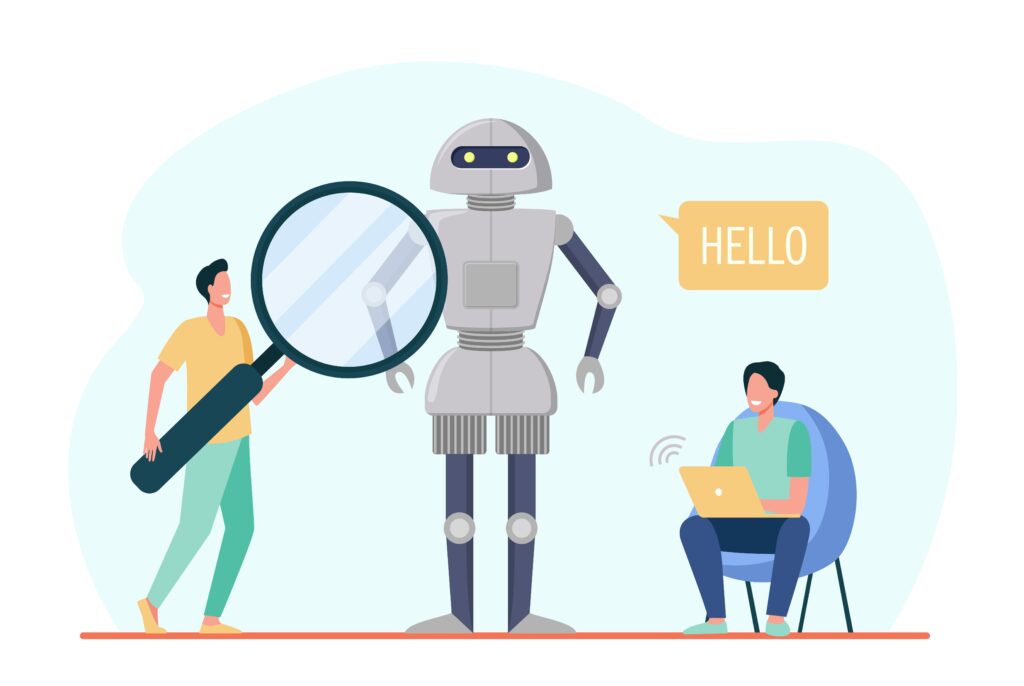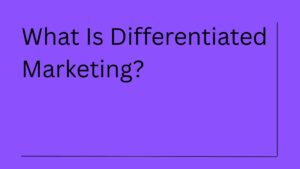Is SearchGPT the future of web search? As artificial intelligence continues to advance, everyone will have the same question keep hitting in their mind.
If you’ve been following the world of artificial intelligence (AI), you might have heard about GPT (Generative Pretrained Transformer), a powerful language model developed by OpenAI. GPT has revolutionized everything from generating text to answering questions, and it has become a major tool for various industries. But what if you could combine this cutting-edge AI with search engines, like Google or Bing? Would that create something like “SearchGPT”? Or is it simply a futuristic concept we’re only dreaming of today?
In this article, we’ll explore whether SearchGPT exists, its potential to revolutionize the way we search for information, and what might be possible in the future.
What is GPT?
Before diving into whether “SearchGPT” exists or not, let’s first understand what GPT is. GPT is an advanced machine learning model designed by OpenAI that can generate human-like text. It is trained on a wide range of internet data, which allows it to generate responses, write articles, answer questions, and even engage in conversations with users.
GPT models, like GPT-3 and GPT-4, are built on deep learning algorithms, which enable them to understand the context of a conversation, predict what words should come next in a sentence, and provide coherent and relevant answers. The technology has shown remarkable abilities in fields ranging from content creation to customer service, making it one of the most talked-about advancements in AI.
However, while GPT excels at generating text and understanding natural language, it doesn’t search the web in real-time to pull the latest information, like a search engine does. Traditional search engines crawl the internet to index web pages and deliver results that are constantly updated. GPT models, on the other hand, are trained on static datasets and can only provide information based on what they’ve been trained on, up until their knowledge cut-off date. So, how does this relate to the concept of “SearchGPT”?
SearchGPT: Does it Exist now or is it Matter of Future?
As of now, there isn’t a specific product officially called “SearchGPT” that combines the capabilities of GPT with live web search. However, there are a few developments that bring us closer to this concept.
1. GPT-Driven Search Engines:
There are several projects that are working on integrating GPT technology with search engines. One example is Microsoft’s integration of GPT technology into its Bing search engine. In early 2023, Microsoft announced a collaboration with OpenAI to incorporate GPT-powered features into Bing. This allows users to receive AI-generated responses, summaries, and even direct answers to complex questions, all based on the data indexed by the search engine. While this is a significant step toward SearchGPT, it’s not quite the same as a fully autonomous AI-driven search system, as it still relies heavily on the traditional search model.
2. AI-Powered Search Assistants:
Several companies are developing AI-powered search assistants that leverage large language models to understand user queries better. These assistants can answer questions in a more conversational way, providing tailored answers that feel more like a dialogue rather than a list of search results. This shift could be seen as an early form of SearchGPT, where the AI doesn’t just list results but also delivers insights, context, and even explanations in a human-like manner.
3. Search Engines with AI Capabilities:
Google, for example, has been incorporating AI into its search engine for years. It uses machine learning algorithms to understand search intent and deliver more relevant results. Google’s “BERT” (Bidirectional Encoder Representations from Transformers) model helps the search engine understand the nuances of language, making it smarter at delivering results. Google has also launched features like “Google AI” and “Google Assistant” to help users search for information in a more conversational and natural way. However, like GPT, these systems are still reliant on traditional search infrastructure, and they don’t generate new content or answers in the same way GPT does.
How Could SearchGPT Evolve?
While “SearchGPT” as a standalone product doesn’t yet exist, the possibilities are exciting. Here’s how we might see this concept evolve in the coming years.
1. Real-Time Information with GPT:
One of the biggest limitations of GPT models today is that they are trained on static data, meaning they can’t access or retrieve real-time information from the internet. For a true “SearchGPT,” the AI would need to be able to search the web in real-time, pulling in the latest data while still providing the human-like text generation that GPT excels at. Imagine asking SearchGPT, “What’s the latest news about climate change?” and receiving a response that’s based not just on the model’s training, but on up-to-the-minute information sourced from across the web.
2. Deeper Understanding of Context:
Right now, search engines like Google rely heavily on algorithms that match your search query with indexed pages. But what if SearchGPT could go beyond simple keyword matching? Imagine a system that understands not just what you’re asking for, but the context of your question. For example, if you ask, “How do I fix my computer?” the AI could recognize whether you’re looking for a hardware solution, a software fix, or general troubleshooting advice. This would create a search experience that’s far more personalized and relevant.
3. Interactive Search Experiences:
GPT models are conversational by nature. If a search engine could seamlessly integrate GPT technology, it could offer an interactive experience where users could engage in a back-and-forth dialogue. For instance, if you were researching a topic, you could ask follow-up questions, and the AI would refine its answers based on your queries, guiding you toward a deeper understanding without having to sift through endless links.
4. Synthesizing Information:
One of the most powerful applications of GPT is its ability to synthesize information from multiple sources into a coherent and comprehensive response. A SearchGPT model could aggregate information from different parts of the internet, presenting it as a single, unified answer rather than forcing the user to click through multiple sources. For example, if you asked about a complicated scientific concept, the AI could pull relevant information from research papers, news articles, and expert opinions, presenting it in a clear, digestible format.
5. Privacy and Customization:
As with any technology, privacy concerns would need to be addressed. If SearchGPT becomes a reality, it could offer more personalized search results based on individual preferences and browsing habits. However, this level of personalization would require robust privacy safeguards to ensure that user data is protected. Future versions of SearchGPT might even allow users to fine-tune the AI’s responses based on their interests and needs, while still maintaining a high level of privacy.
Challenges and Ethical Considerations
While the potential for SearchGPT is immense, there are several challenges and ethical concerns to consider:
1. Accuracy of Information:
A major issue with GPT models is that they don’t always provide accurate information. They might generate responses that sound plausible but are factually incorrect. This is especially concerning when it comes to search engines, where users are looking for reliable information. To ensure that SearchGPT provides trustworthy results, it would need mechanisms in place to validate sources and check the credibility of the data it uses.
2. Bias:
GPT models are trained on vast amounts of data from the internet, which means they can inherit biases present in those data sources. This could lead to biased or skewed search results, especially in areas like politics or social issues. Developers would need to implement strict safeguards to prevent biased responses and ensure fairness in the AI’s outputs.
3. Overreliance on AI:
While SearchGPT could make searching the web more efficient and user-friendly, there’s also a risk that users might become overly reliant on AI-generated responses. It’s important to balance AI assistance with critical thinking and human judgment. After all, not everything generated by an AI system is infallible.
Conclusion: The Future of SearchGPT
While a fully realized “SearchGPT” doesn’t exist yet, we are undoubtedly on the path toward integrating AI and search engines in more powerful and sophisticated ways. We already see glimpses of what SearchGPT could be with AI-driven search features in tools like Microsoft Bing and Google’s AI offerings. As technology continues to advance, we can expect even more seamless, interactive, and intelligent search experiences in the future.
The integration of GPT with search engines has the potential to transform how we access and process information, making it faster, more personalized, and more contextually aware. However, there are still challenges to overcome, especially regarding accuracy, bias, and privacy. Nonetheless, with ongoing advancements in AI, SearchGPT is not just a possibility—it may be a reality sooner than we think.






6 thoughts on “Does SearchGPT Exist, or Is It a Future Possibility? – A Prediction”
Hi there, I found your website via Google while looking for a related topic. Your website came up; your topic popped up; it’s great. I’ve bookmarked it in my Google bookmarks, as I would really like to come back to see if your prediction comes true on the SearchGPT thing.
The information shared is of top quality, which has to be appreciated at all levels. Well done. The best part is that you’ve been discussing the topic that is very futuristic, I mean, the SearchGPT.
Aw, this was a very good post. Taking a few minutes and actual effort to make a really good article… But what can I say… I hesitate a whole lot and have never seen a blogger discuss such on searchgpt, and no one gets nearly anything done.
Yet another great blog from IntoCommerce; I welcome you. I always look for something exceptional here and am constantly updated with multiple topics. This will make certain you are getting through the searchGPT, which no one is talking about. I guess they would, but not now, in the future. Thanks for the essential tips; I have learned from your blog.
Discovering Searchgpt as the best alternative to any current search engine would be fantastic. Because it is certain that these GPTs will emerge as a promising and preferred search platform. I am betting on it.
Hello team,
I guess the answer is yes; SearchGPT would take over any search engine that comes its way for sure.